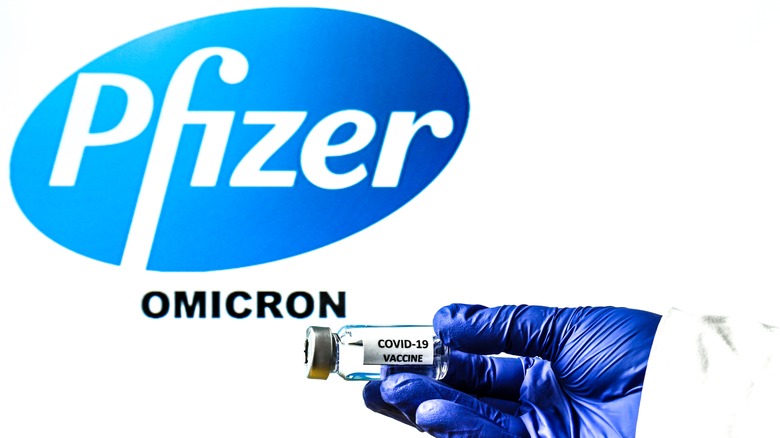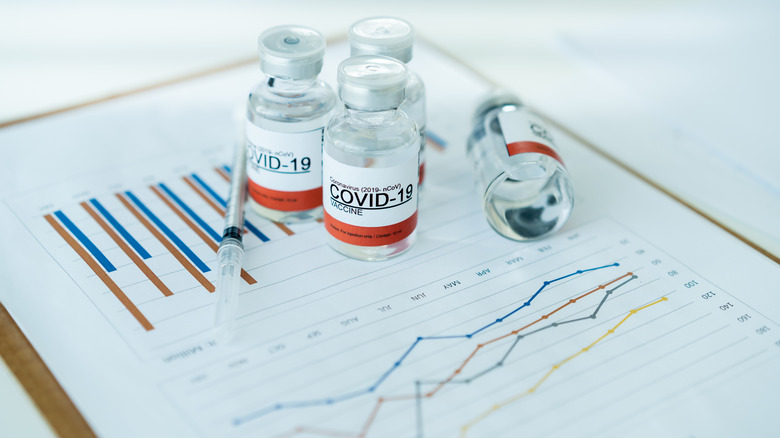How Pfizer Is Modifying Their Vaccine For The Omicron COVID-19 Variant
In a Pfizer press release issued January 25, 2022, company representatives announced the start of a clinical trial for an Omicron-based vaccine. The trial includes 1,420 adult volunteers with varying vaccination statuses. To combat ongoing mutations of the COVID-19 virus, some researchers state that vaccine advancement is critical for maintaining long-term protection against emerging strains. The U.S. Centers for Disease Control and Prevention (CDC) estimates Omicron is currently responsible for 99.9% of COVID-19 cases nationwide (via CNN).
Professor Ugur Sahin, CEO and Co-founder of BioNTech, said in the Pfizer press release, "Vaccines continue to offer strong protection against severe disease caused by Omicron. Yet, emerging data indicate vaccine-induced protection against infection and mild to moderate disease wanes more rapidly than was observed with prior strains."
Population samples of Pfizer's clinical trial include individuals between the ages of 18 to 55 who will be divided into three main groups and administered an Omicron-based vaccine. The first group includes participants who have been vaccinated with two doses of the Pfizer-BioNTech COVID-19 vaccine prior to enrollment. These participants will receive one or two doses of the new vaccine. The second group includes individuals who have received three doses of the Pfizer-BioNTech COVID-19 vaccine prior to enrollment. They will receive one dose of the new vaccine. The third group includes those who are unvaccinated and will receive three doses of the new vaccine.
Do we need an Omicron-specific vaccine?
Researchers are trying to compare the efficacy of the original vaccine to an Omicron-based vaccine. They will be looking at factors such as antibody responses and side effects (via STAT). Experts say study data may be available as soon as March, and health experts will likely know whether or not a new vaccine could provide better protection. However, this doesn't mean the new vaccine will have gone through government approval and be disseminated. The risks and benefits of creating a new vaccine will be carefully considered as the clinical trial is underway.
The U.S. Food and Drug Administration (FDA) told STAT earlier this month, "We probably don't want to take the chance that we're going to abandon something that seems to be at least working reasonably well for something else unless we have good evidence that what we're going to do is going to be better."
While studies are in the works, the rapidly changing nature of the virus will ultimately determine if there is a need for variant-specific vaccines.


